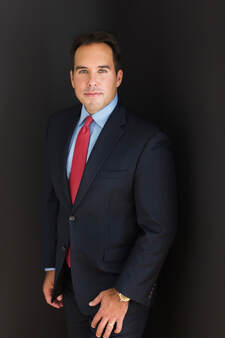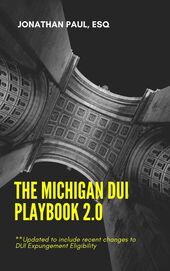Michigan DUI Traffic Stop - ArrestedCall Me: 248-924-9458Michigan Drunk Driving Boot Camp
|
What Other Attorneys Say About Me:
"I had the opportunity of observing Jonathan represent a co-defendant in a difficult 3 count felony drug case. Through Jonathan's efforts all 3 felony counts were dismissed and client pled to a simple misdemeanor possession charge; a truly fantastic result for the client. I would without hesitation recommend Jonathan on a criminal matter" "When I first met John, he was beating me up as a prosecutor. When I heard John became a defense attorney, I was elated for two reasons, first that I wouldn't have to go against him any more, and two, that anybody charged with a crime an Ann Arbor and Washtenaw County have an exceptional criminal defense attorney who gets the job done. As a defense attorney, John uses his extensive experience to craft solutions to tough cases. As a fellow defense lawyer, I rely on John's advice in my own cases. If you are in Ann Arbor and are in trouble, call John, he will help you" "Jonathan is an extremely bright and talented criminal defense lawyer. His years of experience as a prosecuting attorney in New York and Michigan has already made him a top practitioner in his field. I happily endorse Jonathan Paul". |
|
Representing clients in Ann Arbor, Canton, Brighton, Howell, Saline, Adrian, Taylor, Plymouth, Northville, Westland, Ypsilanti, Pittsfield Township, Warren, Sterling Heights, Farmington, Pontiac, Romulus, Lansing, Novi, South Lyon, Southfield, Birmingham, Bloomfield Hills, Royal Oak, Troy, Rochester, Jackson, East Lansing, Garden City, Livonia, Dearborn, Detroit, St Clair Shores, Hazel Park, Ferndale, Madison Heights, Waterford, Milford, Shelby Township Clarkston, Oak Park, Berkley, Fraser, Sterling Heights, Clinton Township and others throughout Washtenaw, Wayne, Monroe, Jackson, Saginaw, Macomb, Ingham, Lenawee, Charlevoix, Ottawa, Clinton, Eaton, Kent, Crawford, Allegan, Emmet, Barry, Kalkaska, Berrien, St. Clair, Livingston, Oakland County & Northern Michigan
Representing clients faced with DUI/drunk driving, retail fraud/shoplifting, drug charges, MDOP, domestic violence, reckless driving, disorderly conduct, careless driving, leaving the scene of an accident, fake ID, open container, UIP, early termination probation and other misdemeanor and felony charges. |
Ann Arbor Office LocationPlymouth Office Location |




